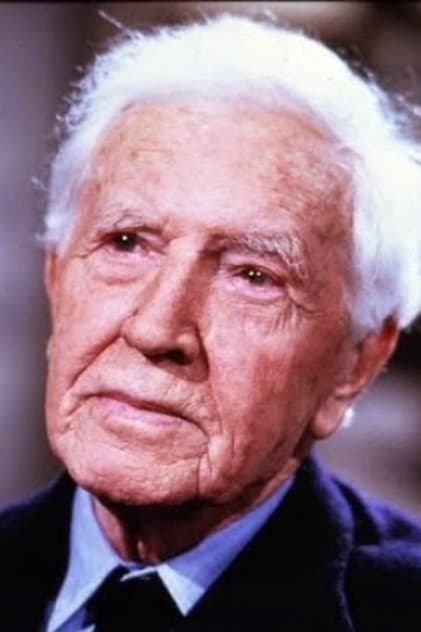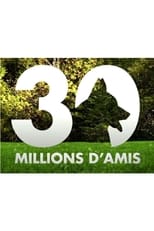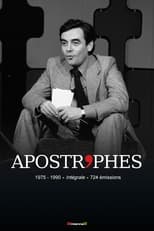

Jules Roy
Born: October 22, 1907
Died: June 15, 2000
in Rovigo, French Algeria
Died: June 15, 2000
in Rovigo, French Algeria
Jules Roy (22 October 1907 – 15 June 2000) was a French writer. "Prolific and polemical" Roy, born an Algerian pied noir and sent to a Roman Catholic seminary, used his experiences in the French colony and during his service in the Royal Air Force during the Second World War as inspiration for a number of his works. He began writing in 1946, while still serving in the military, and continued to publish fiction and historical works after his resignation in 1953 in protest of the First Indochina War. He was an outspoken critic of French colonialism and the Algerian War of Independence and later civil war, as well as a strongly religious man.
Like his friend Albert Camus and his first editor Edmond Charlot, Roy was a descendant of white settlers in French Algeria. He was born in Rovigo, Algeria, and spent his childhood on the farm of his maternal grandparents, the Pâris, small landholders who lived near the village of Sidi Moussa, about eight kilometres north of the town. Roy was the fruit of an adulterous liaison between Mathilde Roy, the wife of a policeman, and Henri Dematons, a school-teacher.
During World War II, Roy commanded a Royal Air Force squadron which was engaged in bombing the Ruhr Basin; he described the missions in La Vallée heureuse (Charlot, 1946). In his memoirs the journalist Walter Lewino states that when Roy first joined the Free French Forces after the Allied invasion of North Africa, he was sent for flight training to Dumfries, where upon skills testing the British ignored his captain's rank and designated him a second navigator, making Roy junior under British rules to his pilot let alone squadron leadership. In June 1953 Roy resigned from the army, at the rank of colonel, in protest at the government's policies in the First Indochina War.
His Le Voyage en Chine (Julliard, 1965) recounts the story of a visit to Mao Zedong's China during which he planned to make a film portraying what he had imagined to be the successful transformation of the society, only to be disappointed at the lack of access to real conditions. In 1995, Roy, who had been living in France for many years, returned to Algeria and visited his mother's grave in the small pied noir cemetery at Sidi Moussa. Roy spent the last years of his life in Vézelay, following his interest in the life of Mary Magdalene. He was first married to Mirande Grimal with whom he had two children, Jean-Louis and Genevieve. Following a divorce he married Tatiana Soukoroukoff in 1965 (she died in 2012). Both children survived him.
Source: Article "Jules Roy" from Wikipedia in English, licensed under CC-BY-SA 3.0.
Like his friend Albert Camus and his first editor Edmond Charlot, Roy was a descendant of white settlers in French Algeria. He was born in Rovigo, Algeria, and spent his childhood on the farm of his maternal grandparents, the Pâris, small landholders who lived near the village of Sidi Moussa, about eight kilometres north of the town. Roy was the fruit of an adulterous liaison between Mathilde Roy, the wife of a policeman, and Henri Dematons, a school-teacher.
During World War II, Roy commanded a Royal Air Force squadron which was engaged in bombing the Ruhr Basin; he described the missions in La Vallée heureuse (Charlot, 1946). In his memoirs the journalist Walter Lewino states that when Roy first joined the Free French Forces after the Allied invasion of North Africa, he was sent for flight training to Dumfries, where upon skills testing the British ignored his captain's rank and designated him a second navigator, making Roy junior under British rules to his pilot let alone squadron leadership. In June 1953 Roy resigned from the army, at the rank of colonel, in protest at the government's policies in the First Indochina War.
His Le Voyage en Chine (Julliard, 1965) recounts the story of a visit to Mao Zedong's China during which he planned to make a film portraying what he had imagined to be the successful transformation of the society, only to be disappointed at the lack of access to real conditions. In 1995, Roy, who had been living in France for many years, returned to Algeria and visited his mother's grave in the small pied noir cemetery at Sidi Moussa. Roy spent the last years of his life in Vézelay, following his interest in the life of Mary Magdalene. He was first married to Mirande Grimal with whom he had two children, Jean-Louis and Genevieve. Following a divorce he married Tatiana Soukoroukoff in 1965 (she died in 2012). Both children survived him.
Source: Article "Jules Roy" from Wikipedia in English, licensed under CC-BY-SA 3.0.
Movies for Jules Roy...

Title: The Lives of Albert Camus
Character: Self (archive footage)
Released: January 22, 2020
Type: Movie
Albert Camus died at 46 years old on January 4, 1960, two years after his Nobel Prize in literature. Author of “L'Etranger”, one of the most widely read novels in the world, philosopher of the absurd and of revolt, resistant, journalist, playwright, Albert Camus had an extraordinary destiny. Child of the poor districts of Algiers, tuberculosis patient, orphan of father, son of an illiterate and deaf mother, he tore himself away from his condition thanks to his teacher. French from Algeria, he never ceased to fight for equality with the Arabs and the Kabyle, while fearing the Independence of the FLN. Founded on restored and colorized archives, and first-hand accounts, this documentary attempts to paint the portrait of Camus as he was.




Title: Apostrophes
Character: Self
Released: January 10, 1975
Type: TV
Apostrophes was a live, weekly, literary, prime-time, talk show on French television created and hosted by Bernard Pivot. It ran for fifteen years (724 episodes) from January 10, 1975, to June 22, 1990, and was one of the most watched shows on French television (around 6 million regular viewers). It was broadcast on Friday nights on the channel France 2 (which was called "Antenne 2" from 1975 to 1992). The hourlong show was devoted to books, authors and literature. The format varied between one-on-one interviews with a single author and open discussions between four or five authors.
